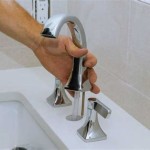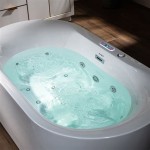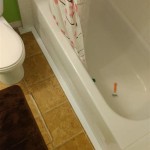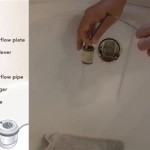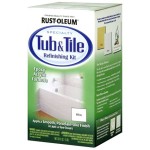Best Caulk for a Bathtub: A Comprehensive Guide
When choosing the best caulk for a bathtub, several crucial factors must be considered to ensure a durable and watertight seal. This guide will provide you with comprehensive knowledge to help you make an informed decision.
1. Type of Caulk
Silicone caulk is the industry standard for bathtubs due to its exceptional durability, flexibility, and waterproof capabilities. Other viable options include acrylic latex caulk, which is more budget-friendly but less resistant to mold and mildew. Urethane caulk offers superior adhesion and elasticity but can be more challenging to apply.
2. Mold Resistance
Bathrooms provide an ideal environment for mold and mildew growth. Look for caulk formulations specifically designed to resist these microorganisms. Mildew-resistant caulk typically contains additives that inhibit their proliferation.
3. Adhesion and Flexibility
Caulk should adhere strongly to both the bathtub and surrounding surfaces, forming a watertight seal. It should also be flexible enough to withstand expansion and contraction caused by temperature fluctuations.
4. Ease of Use
Caulk application should be effortless and can be improved by features such as self-leveling and a fast drying time. Cartridge-based caulk guns provide greater precision and control.
5. Color and Finish
Caulk is available in various colors to match the aesthetic of your bathroom. Choose a color that complements the bathtub and bathroom décor. Additionally, consider the finish, whether it should be smooth or textured.
6. Durability
High-quality caulk should withstand daily use, water exposure, and temperature changes. Look for caulk rated for long-term durability, ensuring it will serve its purpose effectively for years to come.
7. Curing Time
Caulk typically requires time to cure and reach its full strength. Follow the manufacturer's instructions carefully to allow for proper curing. During this time, avoid disturbing the caulk to ensure a successful seal.
8. Safety Precautions
Some caulk formulations may contain volatile organic compounds (VOCs) that can be harmful if inhaled. Ensure proper ventilation during and after application, and follow the safety instructions provided on the caulk label.
9. Regular Maintenance
Caulk can deteriorate over time, particularly in areas exposed to frequent water and moisture. Inspect your bathtub caulk regularly and recaulk as necessary to maintain a watertight seal and prevent water damage.
Conclusion
Choosing the best caulk for a bathtub is essential for preventing leaks and maintaining a pristine bathroom. Consider the factors outlined above to make an informed decision based on your individual requirements. Proper installation and regular maintenance will ensure a durable and effective seal that enhances the functionality and aesthetics of your bathroom.

Caulk Or Sealant Which Is Right For Your Bathtub Badeloft

Make Sure To Use The Best Caulk For Showers

Which Caulks Are The Best For Showers And Tubs
Make Sure To Use The Best Caulk For Showers

How To Caulk A Bathtub Or Shower Tile Pro Depot

Caulking A Bathtub Simple Steps For Successful Seal

Caulk Or Sealant Which Is Right For Your Bathtub Badeloft

How To Caulk A Bathtub Tips Diy Family Handyman

How To Use Bathroom Caulk For A Fresh New Seal

How To Caulk A Bathtub Like Pro




